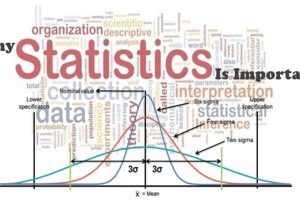
BY ABEBE WOLDEGIORGIS
Recently, the government of Ethiopia announced that it intends to collect property tax all over the country and put direction regarding the implementation. As to the direction, a person who owns a building or residential house worth of more than one million Birr is obliged to pay property tax.
The practice of property tax is common in many countries. Even though the house belongs to the owner, it has a duty to pay property tax. As to the government’s intention the poor segment of the society is immuned from paying the property tax.
Some experts who specialize on urban planning and research say that imposing new tax particularly on property in which the wealth is created in the past is a challenge. As to them, such kind of venture must have been experimented earlier when the land lease system was introduced.
Zinet Abraham is working as a manager in the Revenue Reform Project Office under the Ministry of Urban Infrastructure Development. She said that, the objective of the establishing of the project office is to modernize the urban centers revenue collection system and to implement other options helpful to collect additional income to the municipalities by bringing other countries’ experience here and to implement in accordance with the local reality on the ground.
As to her, until now, very little attention was given to the municipality’s income. In addition, the introduced system to collect revenue is very weak and more of traditional.
The revenue types will be studied and improved and in accordance with the society’s development stage and needs will be introduced. Law with regard to introducing property tax is prepared and evaluation of the values of properties is undergoing with the cooperation of universities. Urban centers are required to provide services to residents regarding infrastructures and social services. But they could not reach to the level where they fulfill the demand of the citizens. Even they are unable to cover their expenditure and meet the demand by other means.
In other countries’ urban centers cover up to 80 percent of their expenditure and to that end they identified 6 types of revenue. Among them is the property tax. Property tax enables municipalities to obtain huge amount of money.
The property tax has been paid since the Dergue promulgated proclamation by its name “Roof and wall” tax. However, the amount of payment was insignificant.
The proclamation enacted by the Dergue must be improved. The asset value assessment also must be improved. In addition, the tax system itself should be adjusted and to that end the preparation of new law is undergoing.
Yohannes Woldegebriel is a legal practitioner specialized on tax laws. As to him, since the final years of the Emperor Hailesilasie I regime, not only the property but also inheritance tax have been proposed to be levied. However, when the next regime, the Dergue came to power, it imposed spewing laws with regard to the state and the community relation and the law restricted people in the single house based on the communist ideology. as the result, the essentiality of the property tax reduced to none.
As to Yohanness, the introduction of new property tax though it is delayed, it is very vital. In Ethiopia the real estate price is unbelievably sky rocketing.
For this reason, people preferred to change their money in to immovable property. Therefore, to change this trend and encourage the people to invest their money on others sectors, introducing property tax can be taken as a remedy.
However, as to Yohanness, the introduction of property tax should have its own purpose to be achieved. And it should be considered whether the tax is derived from the land or the real estate built on the land.
He further said that land is monopolized by the government and tenants both in rural and urban areas have only use rights on land and the urban land holding system again based on lease in which the user has the right to use the plot with in time frame.
“When dealing with property tax the question is that in what bases the tax can be introduced. For example, when the tax is imposed on one building, it should be clearly defined whether it bases the building itself or from the tangible and intangible properties emanated from the building,” Yohanness said.
As to him, to that end, two ideas should be considered. On one hand, the tax can be levied on the building physical structure and the other is on the intangible property developed in the building.
The situation is very controversial. The area where the building is located and the infrastructural development in place also should be considered. The other thing that must need attention is that the anxiety related with the property tax introduction is the rules comprised in the constitution which makes the matter complicated.
The constitution clearly stipulates that land is monopolized by the government. In addition to this, TPLF introduced new rules which declare that the land is owned by nation and nationalities though practically it is not.
“On the other hand, there is an article inserted in the constitution that Oromia region has special benefit from Addis Ababa and in this regard how the property tax is interpreted is not clearly stated. Therefore, these all matters should be cautiously dealt and scrutinized in detail before the new tax law is introduced.” Yohannes said.
It also must be clearly defined whether the tax is paid annually or in one time. Furthermore, whether the wealth taxation, taxation from inheritance property, or property obtained by offer and others introduced or not should be examined Yohannes added.
In addition to that, whether the property taxation law imposed on the religious institutions’ properties and humanitarian organizations’ properties or not should be defined. It is obvious that in the future the rate of property tax will be increased and this might affect citizens the right to get residential house and this also needs consideration.
But to bring remedy for these complicated issues, new fiscal instrument should be put in place. Yohannes has different views in this regard. The introduction of property tax does not bring price hike in house rent.
As to him, the absence of efficient municipality service is responsible for the shortage of house and price hike. In other countries, laws are introduced to monitor that house rent prices are rational or not and property owners are required to be abided by the law.
He further said that in other countries regulating the price of house rents by municipalities is common. The absence of law which serves as a tool to regulate house rents gives way to house owners to set rent price arbitrarily without considering the public paying capacity. Therefore, the government must pay attention in this regard.
As to Yohannes, instead of sanctioning house renters not to increase house rents, it rather better setting price based on the standard of the house by dividing residential houses in to their zones.
The city administration has to scrutinize the problems witnessed in relation with house rents and has to take action when house owners set price in sky rocketed manner. The property tax also considers the reality on the ground such as the nation’s economic situation and the land holding system.
Others by standards also reflect their view in this regard and as to them, the introduction of property tax should consider the urban development and administration, ensuring citizen rights to get access to residential houses and their economic rights and by any means should not put citizens in the disadvantageous position. Regarding the implementation of property tax, countries utilize various modalities and in the Ethiopian context the government has to confer the matter with citizens.
THE ETHIOPIAN HERALD WEDNESDAY 10 AUGUST 2022





